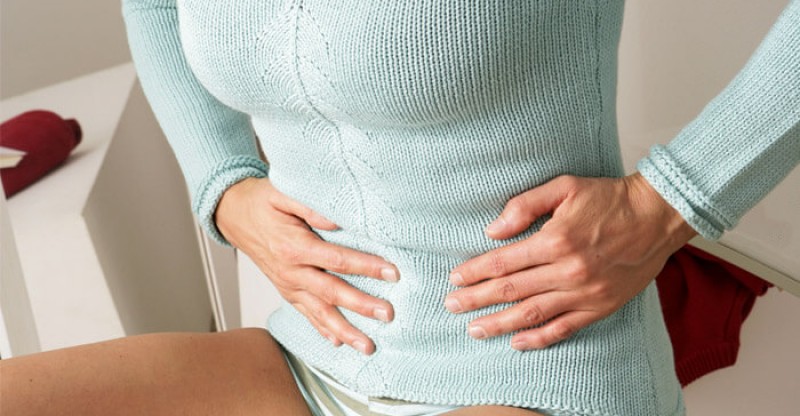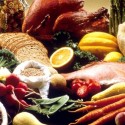19 Science-Backed Remedies for Constipation
Affecting over 60 million people in North America alone, constipation is an all-too-common ailment (1).
While this article primarily looks at remedies to relieve constipation, it also looks at what foods to avoid or cut back on to prevent it.
Unfortunately, many prescription meds actually cause constipation or exacerbate it.
So, here are 19 home remedies to relieve constipation naturally (2).
Water
This might seem like an obvious one, but it is surprising how many people don’t realize the importance of water for the digestive system.
Dehydration is a common cause of constipation.
Keeping hydrated is important – not only for preventing constipation but also in preventing many chronic diseases such as hypertension and fatal coronary heart disease (3).
If you suffer from IBS (irritable bowel syndrome), drinking carbonated water may be your best option.
Studies have shown that it increases bowel movements and encourages gallbladder emptying (4).
Natural Mineral Water
Some mineral waters contain high-levels on magnesium sulfate, which appears to reduce constipation (5).
It’s important that if you are looking for a mineral water to specifically tackle constipation issues that you find one high in magnesium sulfate.
Magnesium is present in many over-the-counter laxative products.
However, it is not advised to take these types of laxatives, long-term, due to potential toxicity (6).
If you are already consuming foods which contain magnesium (such as green leafy vegetables, nuts, legumes, and whole grains), there is no need to add magnesium-rich mineral water to your diet (7).
Fiber
It’s impossible to talk about natural remedies for constipation without talking about fiber.
This is the macronutrient to increase when looking at ways to relieve symptoms.
Many studies support the positive effects of a high-fiber diet, and it is super easy to increase consumption (8).
Vegetables, whole grains, nuts, seeds, and peas are all high-fiber foods that might help with constipation.
Such foods include:
- Lentils
- Split peas
- Black beans
- Lima Beans
- Artichokes
- Porridge (more specifically, oats)
- Brown or whole grain rice
- Peas
- Broccoli
- Bran Flakes, or any other bran-based cereal
- Brussel Sprouts
- Avocados
- Jacket Potato. The skin is an important part. Including the skin, a small jacket potato contains around 3 grams of fiber.
- Wholewheat Pasta
As with all remedies, some people won’t respond well to a high-fiber diet.
Those with chronic constipation might even suffer more from this kind of dietary change (9).
If you’ve increased your fiber intake, and your symptoms have worsened, cut the fiber back down and try one of the other remedies in this list.
Ginger
If you’re not a fan of herbal teas, yet suffer from constipation, you might want to try ginger tea.
Ginger is a Swiss-army knife of a plant with many health benefits.
A proven antioxidant (10), this plant is effective in combatting the causes and symptoms of major illnesses such as diabetes (11), stroke (12), cancer (13), and heart problems (14).
Large quantities of fresh ginger might not be the best option if you have ulcers, inflammatory bowel disease or blocked intestines.
This is because un-chewed fresh ginger can result in intestinal blockage.
It may also interfere with the effects of anticoagulants, such as warfarin or aspirin (15).
Ginger is often recommended for pregnant women suffering morning sickness.
This is due to its antiemetic effects – this means it is a good remedy for nausea and vomiting.
This said, there is no concrete evidence that it is effective in regards to motion sickness or chemotherapy-induced nausea (16).
As usual, check with your healthcare professional before making any significant dietary changes.
Healthy Fats
Fats have been unfairly demonized for decades, but now the tide is turning and the benefits of fats are being realized.
Healthy fats have many benefits, including:
- Supporting a healthy immune system
- Improved hormone synthesis
- Increased metabolic rate
Healthy fats stimulate bile release from the gallbladder.
This is important because bile helps trigger peristalsis (muscle movement) of the colon.
Some of the best foods containing good fats are:
- Avocadoes
- Nuts
- Fatty fish
- Whole eggs
- Extra virgin olive oil
Coffee
A morning hit of coffee is often a great way to get the bowel moving.
Many swear by coffee, and there are scientific reasons for this.
Coffee is shown to encourage gallbladder contraction and colonic motor activity.
This basically means that it stimulates digestive muscles (17).
If you’re wondering, there is a difference between caffeinated and decaffeinated coffee.
Although coffee, in general, can help with constipation, caffeinated appears to stimulate colonic motor activity 23% more than decaffeinated (18).
Raisins
As with many of the items on this list, raisins are a great source of fiber.
The benefits of these tiny dried fruits are huge.
Not only are they great for treating and preventing constipation, but they have been shown to help fight colon cancer cells due to their high content of phenolic compounds (19).
However, high levels of triglycerides are a reason not to eat too many: triglycerides have been linked to an increased chance of developing health problems like fatty liver cancer, diabetes, and coronary heart diseases, due to their high association with obesity (20).
Prunes
Prunes keep you “regular”, as my grandmother would say.
I thought this was just a fictitious story to encourage me to eat prunes – which I was not overly fond of.
However, it is far from an old wives tale. In addition to the high fiber content, prunes contain sorbitol.
Sorbitol is a sugar alcohol which draws water into the large intestine which, in turn, stimulates a bowel movement.
Fresh prunes, dried prunes, and prune juice are all effective in relieving the symptoms of constipation.
Castor Oil
Castor oil is a vegetable oil made by pressing the seeds of the castor oil plant.
It is a known stimulant laxative; this means that it stimulates the lower intestine to move more.
As with all stimulant laxatives, this remedy should only be used for a short time, as it may cause fecal incontinence (21,22).
Castor oil can also induce vomiting, so take with caution!
Exercise
You’ll hear time and time again that exercise and diet help control weight and conditions such as type-2 diabetes.
Interestingly, it has also been shown to alleviate the symptoms of constipation as well (22).
Although exercise has been shown to be of benefit in some studies, it has failed to produce positive results in others (23).
If you’re suffering from constipation, drinking more water and taking regular exercise are normally the best first steps to take.
This is because the benefits reach far beyond their ability to relieve constipation.
Flaxseed Oil
For centuries, flaxseed has been used to treat constipation.
Whole seeds from the plant contain up to 12 percent mucilage.
Mucilage is a glue-like substance found in nearly all plants.
Ingestion leads to a soothing and protective film forming along the digestive tract.
Flaxseed provides both bulk and softness to the stool, making it an excellent choice to relieve constipation.
It is also a great weapon against stomach and intestinal inflammation.
Flax soaks up water, so it is highly important to drink plenty of fluids, as a failure to do so as may actually lead to constipation.
Epsom Salt
The active ingredient in Epsom Salt is magnesium sulfate.
Unlike stimulating laxatives such as castor oil and Senna – which work primarily by encouraging digestive muscles, Epsom Salt works by drawing water into the colon – so make sure you drink plenty of water to replace it.
Possible side effects of Epsom Salt include cramping, bloating, diarrhea, gas, and nausea (25).
Yogurt
Yogurt is probably one of the most well-known sources of probiotics around.
The live bacteria and yeast have displayed promising health benefits in many studies.
Research has found that those suffering from functional constipation had significantly lower levels of bifidobacteria and lactobacillus (the bacteria commonly found in yogurt).
They note that the majority of current evidence is derived from animal studies, and suggest that further research is needed (26).
However, a study from May 2017 compared consumption of a fermented milk product with a standard milk product.
The researchers concluded that there was no benefit of the probiotic option (27).
The evidence does not appear to entirely support the effectiveness of probiotics in treatment for constipation.
However, there is hope with this treatment method and those suffering from constipation should certainly give it a try if other remedies are not working.
Squatting
The human body was never designed to sit on a toilet while defecating.
Therefore, it should come as no surprise that adopting the squat position is a proven way to help with a bowel movement (28).
The common position, whereby people sit with knees at an angle of 90-degrees, makes passing a stool more difficult.
This is because it pinches off the anal canal.
By squatting, the journey of the stool is not hindered.
Although squatting has been shown to help with the overall process, it can also lead to hemorrhoids (29).
Senna
In alternative medicine, the Senna plant has long been used to relieve constipation.
The plant contains sennosides, which irritate the lining of the bowel, causing a laxative effect.
It is available in many pharmacies and drug stores, over-the-counter, and can be taken orally or rectally.
Although used for centuries as a natural laxative, if you have a bowel disorder such as Crohn’s disease or ulcerative colitis it is advised to check with your doctor before using Senna as a laxative (30).
Reducing Protein Intake
Eating too much protein can produce hard stools which are difficult to pass.
This is due to protein dehydration.
Many people starting high-protein diets discover this early on, and quickly adapt by drinking more water to counterbalance this issue (31).
If you’re consuming a high-protein diet for health and fitness purposes (i.e. bodybuilding) you might be eating too much.
Many online protein calculators promote excessively high levels of protein to boost supplement sales.
They rarely include the science behind the calculations, so you should be cautious when using such tools.
When looking at how much protein you might need, you can use this protein calculator.
It produces far more conservative estimates of protein requirements.
Bananas
When looking to improve digestive health, prebiotic foods should be high on your priority list.
Prebiotics are non-digestible carbohydrates which feed the good bacteria in your tummy.
Even if you are not suffering from constipation, increasing the volume of these bacterial digestive superheroes will not only improve your gut health (32) but your immune system as a whole.
And if that wasn’t enough, they display solid anti-inflammatory properties too (33).
Bananas are a source of prebiotics, alongside onion, leek, and dandelion greens.
While the content in bananas is low in comparison with the other foods on this list, the fiber content at around 3 grams is great.
Avoid Dairy
If your child is suffering from constipation, you should consider removing dairy from their diet to see if this helps, as some children have an allergic reaction to cow’s milk (34).
The casein protein found in cheese and milk is particularly hard to break down.
So hard, in fact, that baby cows are born with a special enzyme in their stomach called “rennet” to help with the process (35).
This addictive protein (due to the casomorphins which act in the same way as opiates) is certainly something to consider cutting if nothing else seems to be working.
Reflexology
No article on natural remedies would be complete without referencing reflexology.
Reflexology (also known as zone therapy) is the practice of applying pressure to specific zones of the body to relieve symptoms of various ailments.
It is worth remembering that reflexology is based on pseudo-science.
This means that it often relies on confirmation bias, and is based on unsound scientific evidence and opinion.
For this reason, we have included this at the end of our list.
We recognize the effectiveness of the placebo effect, so if you have tried everything else, or believe you will have success with reflexology, you can check out some techniques to relieve constipation at Modern Reflexology.
FDA Compliance
The information on this website has not been evaluated by the Food & Drug Administration or any other medical body. We do not aim to diagnose, treat, cure or prevent any illness or disease. Information is shared for educational purposes only. You must consult your doctor before acting on any content on this website, especially if you are pregnant, nursing, taking medication, or have a medical condition.
HOW WOULD YOU RATE THIS ARTICLE?






